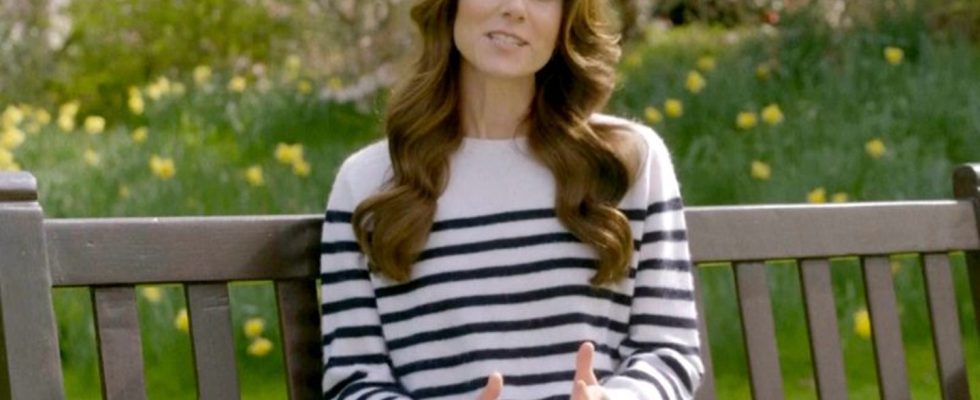Princess Kate hopes for privacy after announcing her cancer diagnosis. The fact that wild speculation had previously spread also shows that the royal family is now fighting against a new power.
The fact that Princess Kate made her cancer public in a video message was also linked to a wish. “We hope you will understand that we as a family need some time, space and privacy now,” said the 42-year-old. The fact that there had previously been wild speculation about their absence has not only sparked a debate about the royals’ privacy, but above all about society’s use of social media.
How cruel it must be to recover from an operation and then hear that your own absence seems suspicious, wrote author Rachel Cooke in the British newspaper “The Observer”. “How terrible it is to go through chemotherapy and know that if you step outside your front door you will most likely be photographed.”
Some are now self-critical
Since Kate’s announcement, some have been self-critical. Actress Blake Lively apologized for a joke she posted. In the Independent newspaper, a writer wrote that he was now ashamed of having indulged in conspiracy theories: “If there’s one good thing about this whole thing, it’s that it might encourage us to think twice before we shut our mouths “Torn apart about the next ‘big secret’.”
Last week, the Archbishop of Canterbury, Justin Welby, called for everyone to deserve rest when they are sick. He blamed the Internet for the rapid spread of rumors today: “It’s just old-fashioned village gossip that can now spread around the world in seconds, and we have to turn away from it.”
Criticism of the platforms’ algorithms
BBC journalist Laura Kuenssberg asked an expert how things could have come to this in the past few weeks. There is a simple truth behind this – namely how social media platforms work, said Imran Ahmed, head of the organization CCDH (Center for Countering Digital Hate), which is committed to combating online hate. He accused the platforms of pushing controversial content to the top.
“You see a curated selection. Curated by an algorithm,” Ahmed said. The selection is designed to be as addictive as possible. Controversies, conspiracy narratives and hatred would be promoted. Posts would also come up that people didn’t agree with and would think, “That’s complete nonsense. Why would you say something like that?”
Ahmed referred to a psychological effect called the “illusory truth effect”: “The more often we see something, the more we tend to believe it to be true.” But that can be misleading. According to Paddy Harverson, a former Royals advisor, online speculation and media coverage can reinforce each other, creating a vicious circle. “And it’s as bad as I’ve ever seen.”
Kate’s video touched many people
The video message, which went viral around the world, showed Princess Kate alone on a bench. Daffodils bloomed in the background and she wore a striped sweater and jeans. The daughter-in-law of King Charles III. said that tests after her operation revealed that there was cancer and that she was now receiving chemotherapy as a precaution. Maybe this is close to many people because they have had experience with cancer themselves – and Kate is such a young woman with three small children.
According to author Tessa Dunlop, who wrote a book about the late Queen Elizabeth II and her husband Prince Philip, the video will be a defining moment for the royal family. “While everyone around her seemed to be losing their minds, Kate – not generally known for groundbreaking speeches – gave the speech of her life,” says Dunlop in the Independent. With her demonstrated humanity and fragility, Kate reminded us that pain knows no hierarchy.
Comparison with young Elizabeth
Dunlop likened the video to a speech given by the young Elizabeth, who dedicated herself to a life of service on her 21st birthday. The then heir to the throne promised in 1947 that she would dedicate “my entire life, whether it be short or long,” to her subjects. Kate thanked others in her own hour of need and confidently reached out to people who were suffering from cancer themselves. For Britain’s future queen, the video message is now likely to become part of her history.

